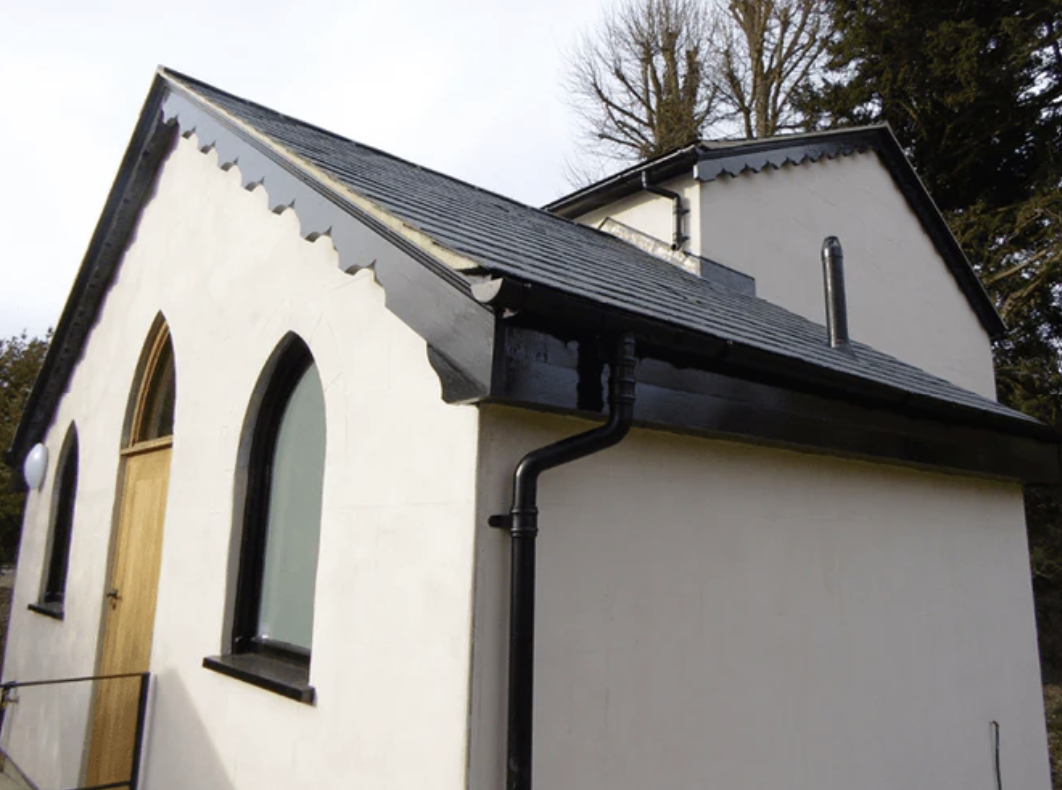Cast iron guttering is known for its durability and classic appearance, making it a popular choice for many homes and historical buildings. However, despite its strength, cast iron rainwater can corrode over time.
Understanding the factors that contribute to this corrosion can help you take steps to prevent it and maintain the longevity of your guttering.
Key Factors That Cause Cast Iron Guttering to Corrode:
1. Moisture Exposure
Moisture is the primary culprit in the corrosion of cast iron guttering.
When cast iron is exposed to water for extended periods, it undergoes a chemical reaction known as oxidation, forming rust.
This process is accelerated in areas with high rainfall or humidity, where the gutters remain wet for longer periods. So watch out!
2. Acidity in Rainwater
Rainwater here in the UK is not always pure; it often contains acidic pollutants from the atmosphere.
When acidic rainwater comes into contact with cast iron, it can speed up the corrosion process.
Acid rain, which is caused by industrial pollution and emissions, is particularly damaging to metal surfaces, even your cast iron hoppers.
3. Poor Maintenance
Neglecting regular maintenance can lead to the buildup of debris, such as leaves, dirt, and organic matter, in the gutters.
This debris traps moisture against the surface of the cast iron, creating an ideal environment for rust to develop. Regular cleaning and inspection are crucial to prevent this.
4. Coating Damage
Cast iron gutters are typically coated with a protective layer of paint or bitumen to shield them from the elements.
Over time, this protective coating can deteriorate or become damaged, exposing the bare metal to moisture and oxygen.
Chips, cracks, or wear in the coating can lead to localized corrosion.
5. Electrochemical Reactions
When cast iron comes into contact with other metals, such as copper or steel, electrochemical reactions can occur, leading to galvanic corrosion. T
his type of corrosion happens when two different metals are in electrical contact in the presence of an electrolyte (e.g., rainwater), causing the more reactive metal (cast iron) to corrode faster.
6. Other Environmental Factors
Certain environmental factors can exacerbate the corrosion of cast iron. Coastal areas, such as Brighton or in the Highlands, for example, have higher levels of salt in the air, which can accelerate the rusting process.
Industrial areas may have higher levels of pollutants that can contribute to acid rain and increase corrosion rates.
How to Prevent Corrosion in Cast Iron Guttering:
1. Regular Maintenance
Inspect and clean your gutters regularly to remove debris and ensure proper water flow. This reduces the amount of moisture and organic matter that can contribute to rust formation.
2. Protective Coatings
Maintain the protective coatings on your cast iron guttering. Repaint or reapply bitumen coatings as needed to ensure there are no exposed areas of bare metal.
3. Use of Sealants
Seal joints and seams with appropriate sealants to prevent water ingress and reduce the risk of corrosion at these vulnerable points. Read our other blog on whether you need sealant or not.
4. Avoid Metal Contact
Where possible, avoid direct contact between cast iron and other metals.
Use appropriate insulating materials or fittings to prevent galvanic corrosion.
5. Environmental Considerations
If you live in a coastal or industrial area, consider additional protective measures such as more frequent maintenance and using specialized coatings designed for harsh environments.
By understanding the causes of corrosion and taking proactive steps to protect your cast iron guttering, you can significantly extend its lifespan and keep it looking great for years to come.

